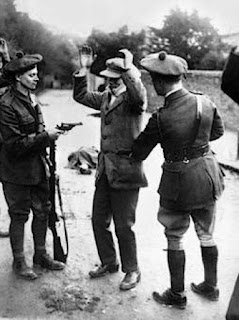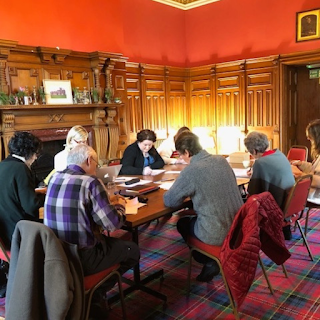When
I first began writing, my writing tutor told me that all good stories
had a beginning, a middle, an end and a point. When the
reader reaches the end they should end on an emotion – a smile, a
laugh, perhaps a few tears, and a new, improved understanding of the
world and how it operates. It’s this that gives the story its
raison d’etre. Stories, my tutor said, should embody a
universal truth, or illustrate a well-known proverb – eg “love
conquers all”, “blood is thicker than water”, “money can’t
buy happiness”. She was speaking then about short stories, but the
same principle can and should apply to novels, the only difference
being that a novel is so much longer and can incorporate several
themes within their length.
I
try to come up with a theme for each novel early on in the planning
phases. I write dual timeline novels, and for me it’s the theme or
universal truth that hopefully ties the two stories together in a
deep and satisfying way.
What
themes have I used in my novels? The Emerald Comb is all about
identity – who do you think you are? Is it your ancestry that makes
you the person you are, or the way you were brought up?
The
Pearl Locket is about love and constancy. The Daughters of Red Hill
Hall looks at toxic friendships and jealousy. The Girl from Ballymor
has a strong theme of maternal sacrifice. The Drowned Village has
themes of family loyalty and betrayal.
And
my latest, The Forgotten Secret, is I think my strongest-themed book
to date – it’s all about independence. The historical
backdrop is the Irish war of independence, and in the contemporary
story a woman approaching the milestone age of 50 is fighting to
regain her own independence after a long and abusive marriage.
Writing
about the Irish war of independence brought its own set of
challenges. It was far more difficult than writing about the second
world war, as I did in The Pearl Locket. In WW2 there were more
obvious ‘goodies’ and ‘baddies’ but the Anglo-Irish war is
not so clear cut – especially when you look at the aftermath of the
treaty that ended the war of independence and divided Ireland. The
Irish leadership was split between those who agreed with the treaty
and those who opposed it. Civil war broke out between the two
factions within a few months of the signing of this treaty. And the
‘Troubles’ in Northern Ireland of the 1970s-80s were a direct
descendent of the disagreement about the treaty.
So
as well as using the theme of independence, in The Forgotten Secret I
try to illustrate the old adage that “one man’s terrorist is
another man’s freedom fighter” - that there are two sides to
every conflict and it is not always obvious which is right. It was a
fine line to tread, in the book. The choice of language plays a large
part in this – was a soldier “murdered” or “shot dead”? Are
the rebel MPs running a “campaign” or “plotting” against the
government? Many early reviewers have commented that growing up in
Britain during the period of the ‘Troubles’, had left them with
little knowledge of the origins of Ireland’s problems, or
understanding of the ‘other side of the story’. I hope my book
has addressed this, a little.




















